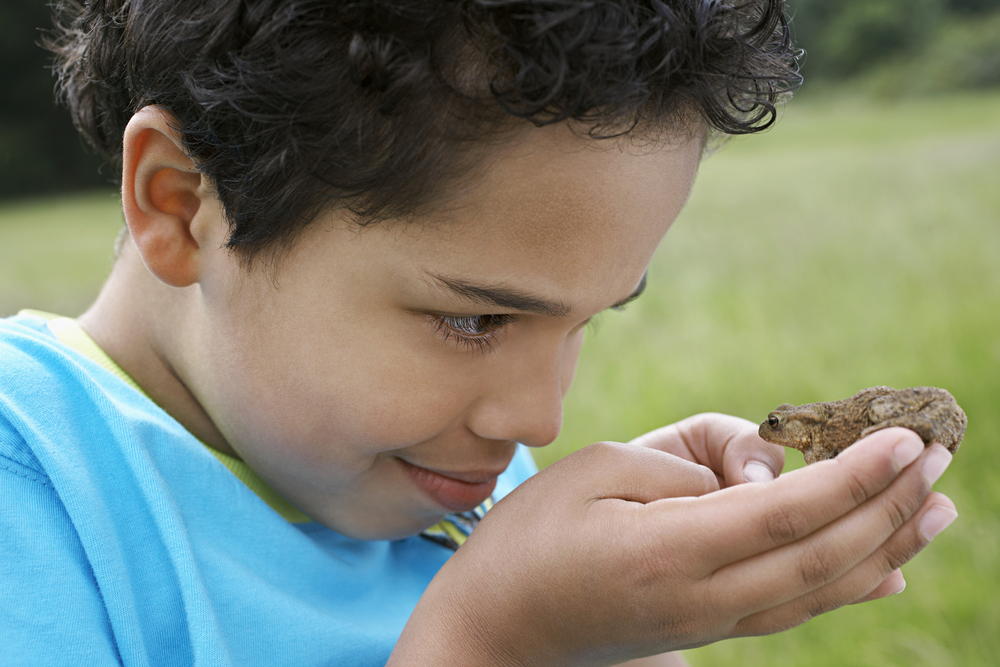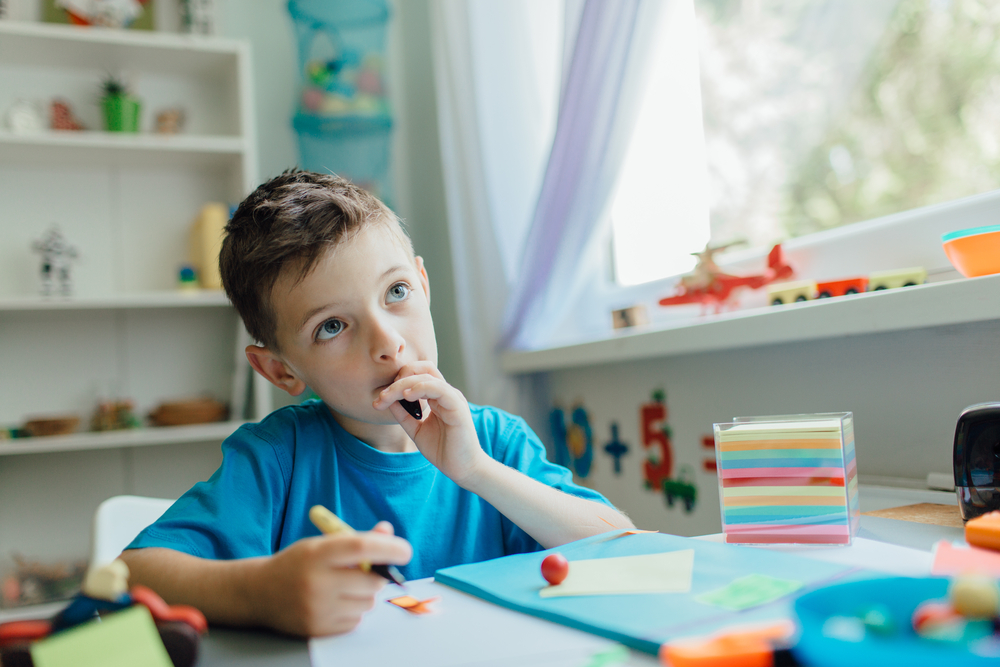Categorization skills Normal Science Worksheets for 5-Year-Olds
4 filtered results
-
From - To
Welcome to our Categorization Skills Normal Science Worksheets for 5-Year-Olds! Designed to engage young learners, these worksheets help children develop critical thinking and organizational skills through fun, interactive activities. Our collection focuses on sorting and classifying objects based on various attributes, promoting cognitive growth and enhancing understanding of the natural world. Each worksheet is crafted with colorful graphics and age-appropriate challenges that keep students motivated and eager to learn. Encourage your child's curiosity and analytical abilities with these essential worksheets, perfect for enhancing their science knowledge while building a strong foundation in categorization. Explore our worksheets to make learning enjoyable!


Sorting Animals in 3 Groups Worksheet
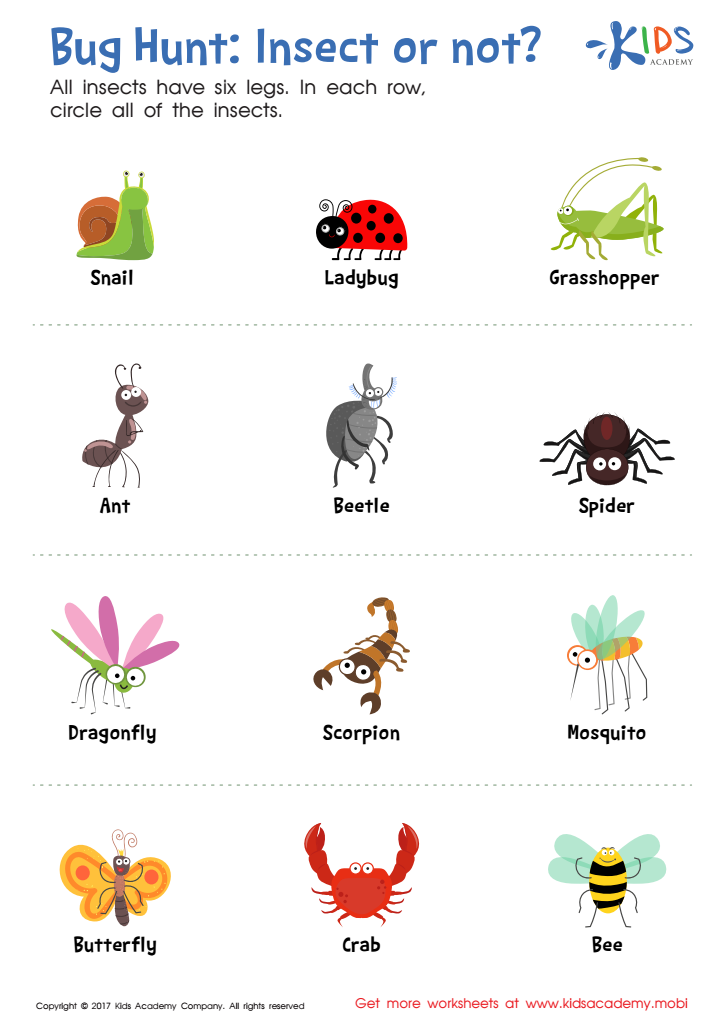

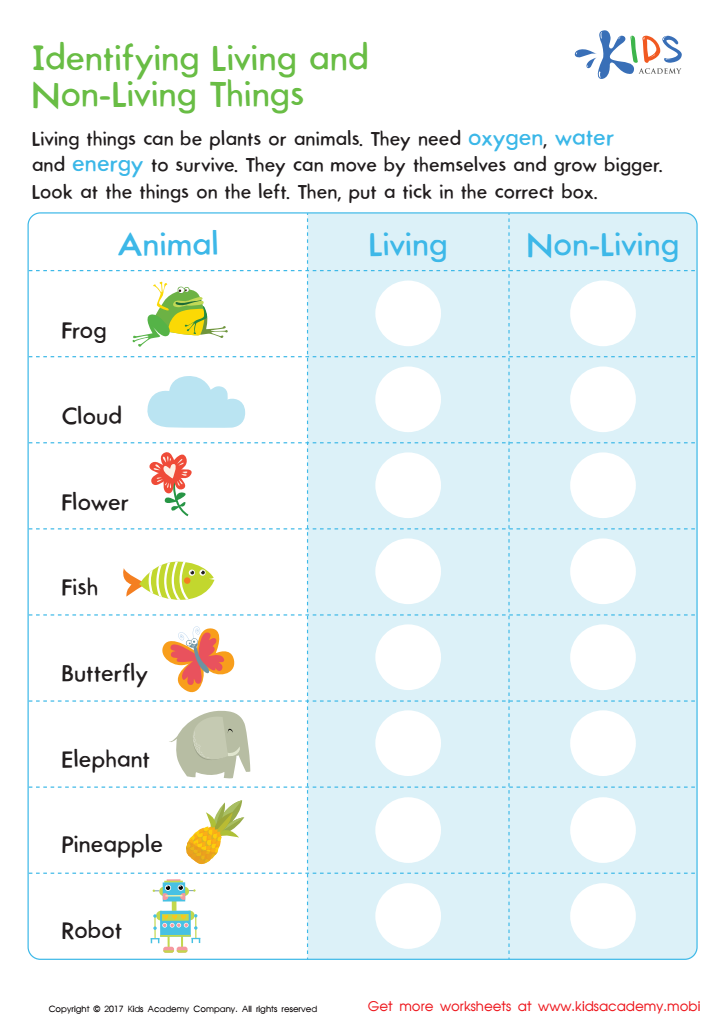

Identifying Living or Non–living Worksheet
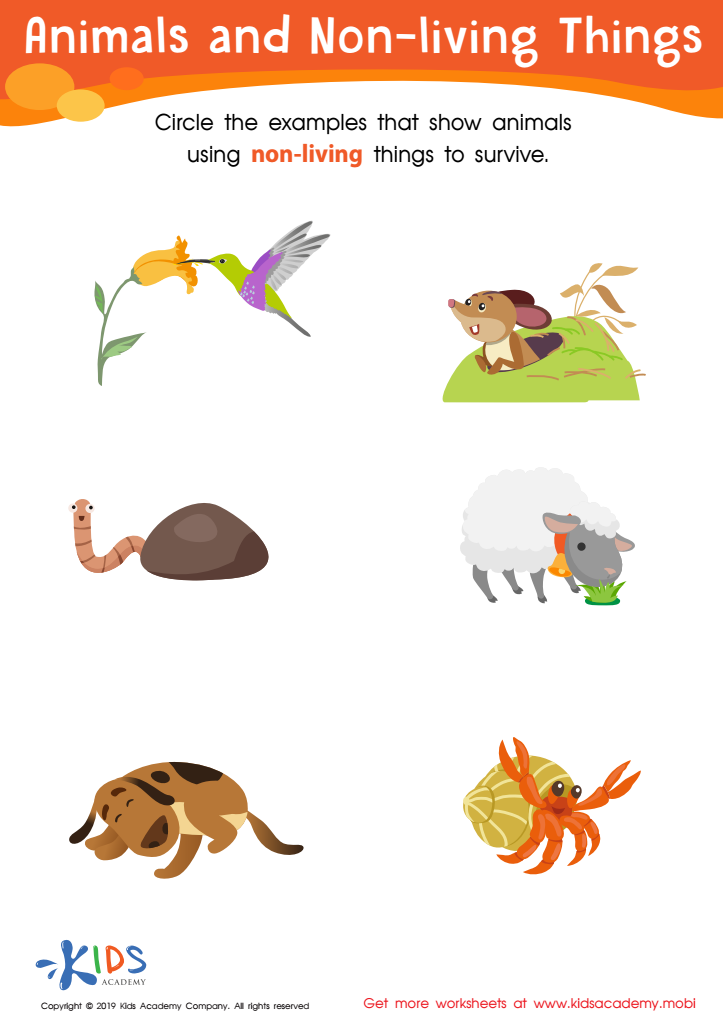

Animals and Non-Living Things Worksheet
Categorization skills are essential for 5-year-olds as they lay the groundwork for critical thinking and effective learning. At this age, children explore the world through their interactions, and categorizing helps them make sense of their experiences. By grouping objects, ideas, or experiences, children enhance their cognitive development, fostering logical reasoning and problem-solving abilities.
For parents and teachers, supporting the development of categorization skills can lead to better communication and social interactions for children. When children learn to categorize, they can organize their thoughts, follow instructions, and express their ideas more clearly. This, in turn, helps them navigate social situations and builds confidence in their abilities.
Moreover, categorization underpins foundational concepts in science, mathematics, and language. It aids in vocabulary development, as children classify words into different categories such as animals, colors, or shapes. This not only enriches their language skills but also equips them with the tools to engage in more complex learning tasks later on.
In summary, nurturing categorization skills in early childhood is critical for cognitive, social, and academic success. Parents and teachers should prioritize these skills to help young learners become more effective thinkers and communicators.

 Assign to My Students
Assign to My Students


.jpg)



